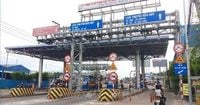The Ministry of Construction of Vietnam has taken significant steps to address the ongoing challenges faced by 11 Build-Operate-Transfer (BOT) transport projects across the country. In collaboration with the State Bank of Vietnam and local authorities, the Ministry conducted a thorough review of these projects, identifying specific issues that have hindered their progress. This review culminated in a list of 11 projects, with eight falling under the jurisdiction of the Ministry of Construction and three managed by local authorities.
As part of its efforts to resolve these issues, the Ministry has engaged in negotiations with investors and credit institutions. The proposed solutions include utilizing state capital to terminate contracts for six of the projects while providing additional state funding to support the continued implementation of the remaining five projects. This dual approach aims to streamline operations and ensure that these critical transport projects can move forward.
On April 9, 2025, the Ministry, alongside the State Bank of Vietnam, held a negotiation meeting to further discuss these matters. The results of this meeting revealed a consensus among investors and credit institutions regarding a risk-sharing mechanism for five out of the eleven projects that require state capital support. However, the negotiations surrounding the six projects that may be terminated produced mixed responses. Some investors suggested reducing their profits, while all credit institutions insisted that previously paid loan interest not be recovered, advocating only for a reduction in loan interest. This stance, however, does not align with the government's recent directives outlined in Notice No. 270/TB-VPCP.
The Ministry of Construction has highlighted that the amended Public-Private Partnership (PPP) Law (Law No. 57/2024/QH15) provides a legal framework for terminating contracts early; however, it lacks provisions for state capital participation during the operational phase of these projects. To address this gap, the Ministry is advocating for the submission of a resolution to the National Assembly, seeking to either pass a separate resolution or amend the PPP Law to include provisions for state capital participation in ongoing operations. This amendment is deemed essential for the effective resolution of the issues plaguing all 11 BOT transport projects.
In its previous legislative proposals, the Ministry had recommended adding two key policies to the PPP Law: one that would allow for state capital to terminate contracts early and another that would facilitate state support during the operational phase of the projects. However, the current amended PPP Law only incorporates the former, leaving a significant gap in the legislative framework.
The Ministry believes that once the necessary amendments are made, it will be able to address the challenges faced by all 11 BOT transport projects, as well as any potential future projects. The list of projects currently under review includes significant infrastructure initiatives, such as the BOT project on National Highway 1, the Thai Nguyen - Cho Moi road, the upgrading of the Ho Chi Minh road, and the National Highway 91 enhancement, among others.
Specifically, the eight projects under the Ministry's authority include:
- The BOT project on National Highway 1, which involves bypass routes around Thanh Hoa city.
- The construction of the Thai Nguyen - Cho Moi road and the upgrade of National Highway 3.
- Enhancements to the Ho Chi Minh road in Dak Lak province.
- Upgrading of National Highway 91.
- Improvements to the Saigon River channel from Binh Loi bridge to Ben Suc port.
- The construction of the Viet Tri - Ba Vi bridge.
- The Thai Ha bridge project.
- The tunnel road project through Deo Ca.
The three projects managed by local authorities include:
- The Bac Giang - Lang Son expressway.
- The An Hai bridge project in Phu Yen province.
- The upgrade of National Highway 39B and the bypass around Thanh Ne town in Thai Binh province.
Given the importance of these infrastructure projects in enhancing the country's transport network, the Ministry of Construction is committed to finding viable solutions that will enable their successful completion. The proposed legal amendments and state interventions are seen as critical steps in overcoming the existing hurdles.
As the Ministry continues to engage with stakeholders, including investors and financial institutions, it remains hopeful that a collaborative approach will yield the necessary support and resources to revitalize these essential transport projects. The outcome of these negotiations and proposed legislative changes will not only impact the current projects but may also set a precedent for how future public-private partnerships are managed in Vietnam.
With the National Assembly's upcoming session on the horizon, the Ministry is poised to present its case for the necessary amendments, emphasizing the urgency of addressing these infrastructural challenges. The successful resolution of these issues is paramount for the development of Vietnam's transport infrastructure and, by extension, its economic growth.





